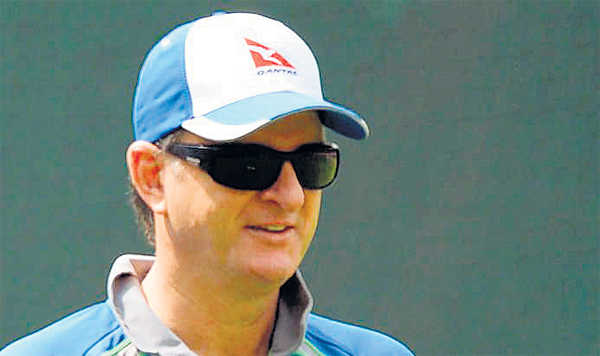
Rohit Mahajan
Tribune News Service
Chandigarh, May 16
Mark Waugh, the former Australian batsman, today said it is “selfish” of India to refuse to play a day-night Test during their tour of that country later this year.
All top teams in international cricket have played at least one day-night Test — except India. Day-night Tests were conceived due to the falling attendances in Test matches across the world. If the Test format — the most challenging format of cricket, frequently called the ‘prime’ format of the sport — is to survive, day-night cricket could hold the key.
Why, then, is India refusing to play day-night Tests? The Indian team is not ready to play day-night Tests because of the variables involved. Indians play a lot of day-night cricket, but it’s all in 50-over or T20 cricket. Playing a Test in afternoon-evening-night is a huge challenge that needs preparation. Ravi Shastri, India’s chief coach, has reportedly said that the team needs “12 to 18 months to prepare for pink-ball cricket”.
When to prepare?
When can the Indian players prepare for long-form cricket played with a pink ball under floodlights?
The Indian cricket board (BCCI) has made efforts in the recent past — the Duleep Trophy tournaments in 2016 and 2017 were day-night games, played with a pink ball, made by an Australian company, Kookaburra. But only one India regular figured in the Duleep Trophy last year — Ishant Sharma, who played two matches. Second-choice wicketkeeper Parthiv Patel played two, Dinesh Karthik played three, and Test discard Karun Nair played one.
The same month, September, India played a five-match ODI series against Australia. The dates of some Duleep Trophy games clashed with the India-Australia games. No wonder Virat Kohli or Rohit Sharma or Ajinkya Rahane didn’t play the Duleep Trophy. They were on national duty.
In 2016, several top Indian players did figure in the Duleep Trophy: Shikhar Dhawan (1 match), Cheteshwar Pujara (2), Rohit Sharma (1), Murali Vijay (1), apart from Ravindra Jadeja (1) and Kuldeep Yadav (3).
These players learnt important lessons in 2016: They figured that the lacquer of the Kookaburra pink ball didn’t wear off in grassy conditions, and this led to no revere-swing. In dry conditions, the pink ball lost its colour quickly and the batsmen found it difficult to see it.
Must-play
India is the No. 1 ranked team in the world. It’s true that India’s most fanatic fans care more for the shorter formats, but BCCI, and former and current players know the value of Test cricket and must join efforts to keep it alive.
The rest of the cricket world has taken strides into day-night cricket, and India must play a day-night Test sooner or later. But Team India and BCCI are contemplating a time-frame of 12 to 18 months before joining the day-night Test party.
In 2016, the crowds for the Duleep Trophy games numbered over 3,000 each match; such crowds are unheard of in domestic day matches. Dinesh Karthik then said: “If the crowds are a yardstick to go by in day-night matches, we should give that box a tick. I think it is a great way to bring crowds in.”
Bringing in the crowds for the Tests has rarely been a priority for BCCI — the revenue from the TV rights is so huge that gate money is merely loose change, totally irrelevant. But India must join the rest of the world in efforts to attract audiences for Tests. BCCI, as the economic powerhouse of cricket — and with the world’s No. 1 Test team — should be at the forefront of these efforts. If not that, then it must at least keep up with the world.
Waugh calls India ‘selfish’ for refusing to play d-n test
It's a little bit selfish from India's point of view because we need to revitalise Test cricket. Day-night Test cricket in some countries is going to be one of those ingredients that could transform Test cricket back to here it should be
India well-suited for pink-ball cricket
Their team is pretty well suited to day-night cricket, they've got a string of fast bowlers, so they don't just rely on the spinners, and their batsmen are technically very good as well. So for the greater good of the game, I would have loved to have seen that as a day-night Test



























